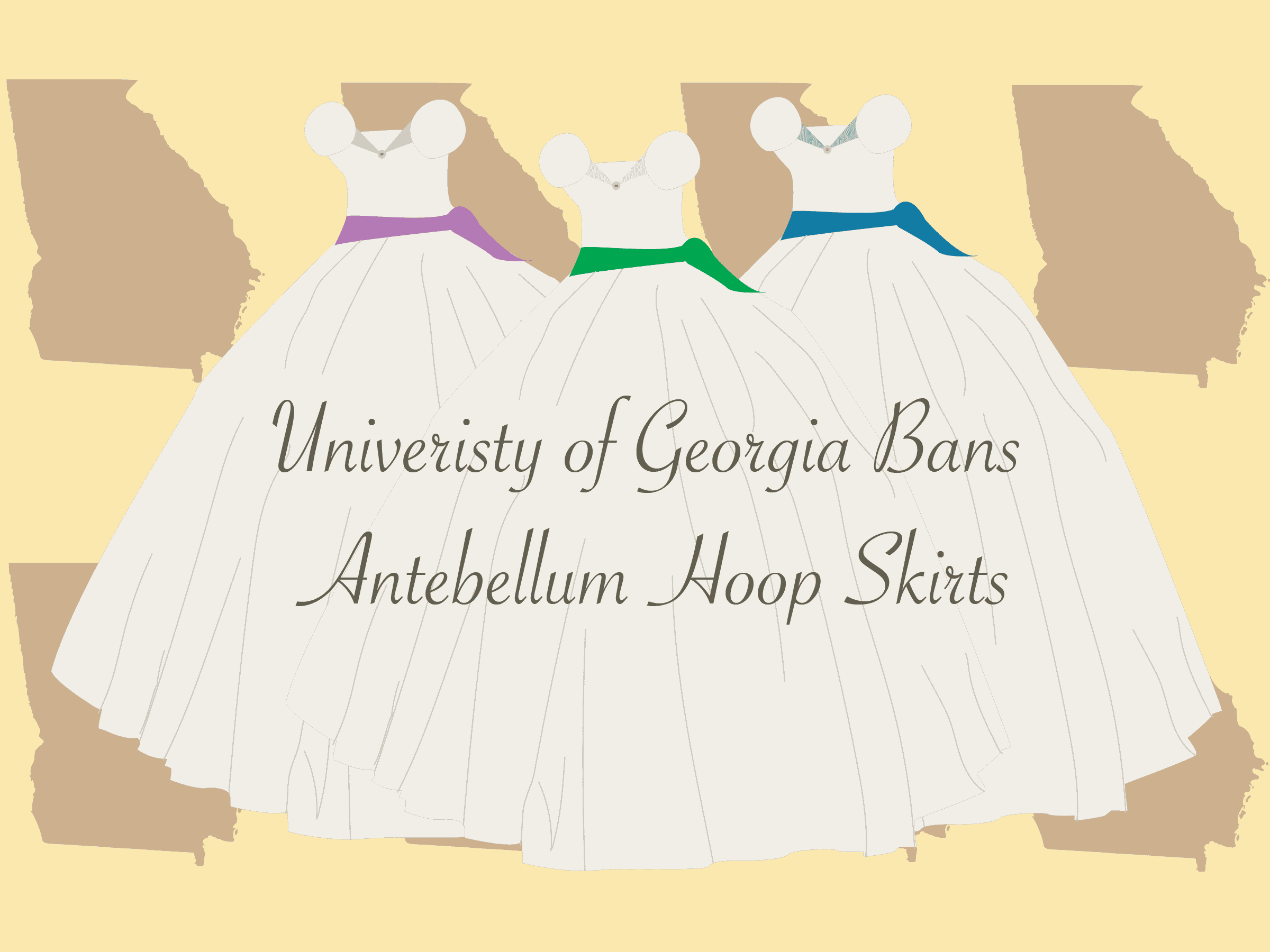
Jumping through hoops: University of Georgia’s student council bans hoops skirts
Graphic by Victoria McNorrill
Victoria Pujdak, Staff Writer
Sparking recent controversy over the modern definition of racism, the University of Georgia banning antebellum hoop skirts to special school events has been received with mixed emotions.
Racism has progressively become more prevalent on American campuses in recent months, beginning with the release of an online video of an Oklahoma University fraternity chanting racial slurs and continuing throughout the nation to various campuses.
In view of this, the UGA student council has decided to prohibit female students from wearing antebellum dresses to traditional fraternity events such as Old South Week and the Magnolia Ball. UGA hopes that this reform will present their fraternities in a positive light and disband any undesirable attention.
The question many have begun to ask is, �Are hoop skirts inherently offensive or do their historical link to slavery make them invasive?�
�When a given style begins, it is a bit subjective,� said Paul Thompson, a professor of History and Political Science at North Greenville University.
Various versions of hoop skirts have been seen throughout fashion history since the 16th century. In America, this fashion trend has been most prevalent during the antebellum time period. Often, the antebellum South has been viewed as a time of beauty and elegance, a contrasting facade to the underlying darkness of slavery that shrouded the South.
Because of the potential symbolism of a hoop skirt linking to slavery, the UGA student council has deemed hoop skirts inappropriate attire in the context of some school events. The school also banned male students from wearing Confederate uniforms years ago.
However, some UGA students feel that they are being cheated from dressing up and having fun. Many female students view these events as a time to wear frilly dresses and look cute, not thinking about the potential historical infamy of their attire.
�It�s trying to make the antebellum South look cute. When I think of a plantation, I think about slavery. Indirectly, hoop skirts are associated with the South before the Civil War. To create a positive light of a time of oppression is offensive,� said Thompson.

